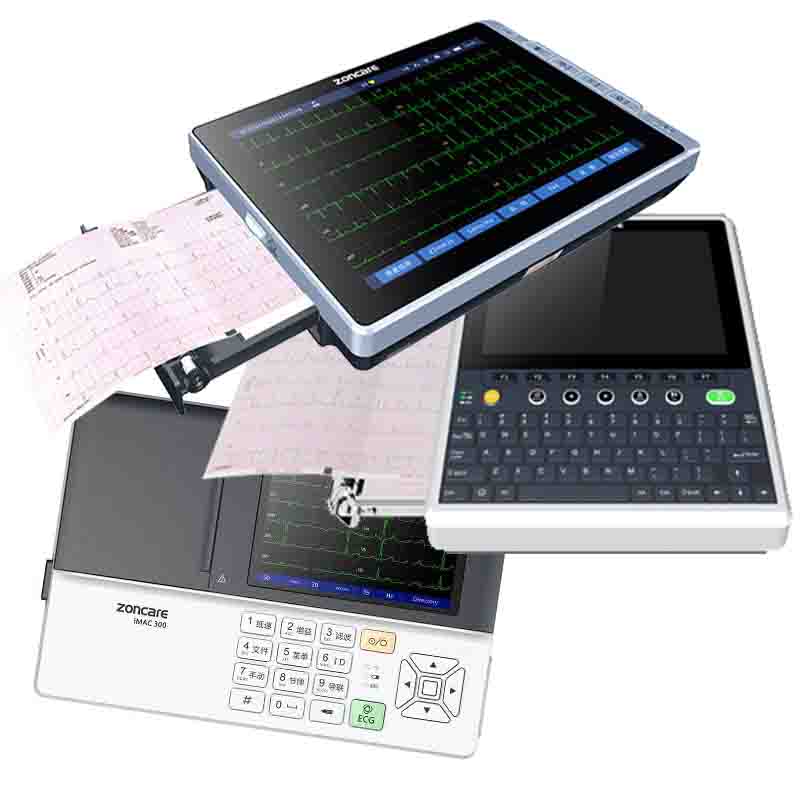Electrocardiographs (ECG)
- Featured
- Best selling
- Alphabetically, A-Z
- Alphabetically, Z-A
- Price, low to high
- Price, high to low
- Date, old to new
- Date, new to old
No products found

An ECG (electrocardiogram) is a diagnostic test that records the electrical activity of the heart. It is a non-invasive test that is performed by placing electrodes on the skin of the chest, arms, and legs.
During an ECG test, the electrodes detect the electrical impulses generated by the heart and transmit them to a machine that records the information. The resulting waveform, known as an electrocardiogram, shows the timing and strength of the electrical signals as they travel through the heart.
An ECG can provide valuable information about the heart’s rhythm and can help diagnose a range of cardiac conditions, including:
Arrhythmias: irregular heartbeats
Atrial fibrillation: a type of arrhythmia in which the upper chambers of the heart beat irregularly and rapidly
Heart attacks: a blockage in the blood vessels that supply the heart muscle
Heart disease: damage to the heart muscle caused by various factors, including high blood pressure, diabetes, and smoking
ECG tests are commonly performed in hospitals, clinics, and doctor’s offices. They are a quick and painless procedure that can provide valuable information about a person’s heart health.

